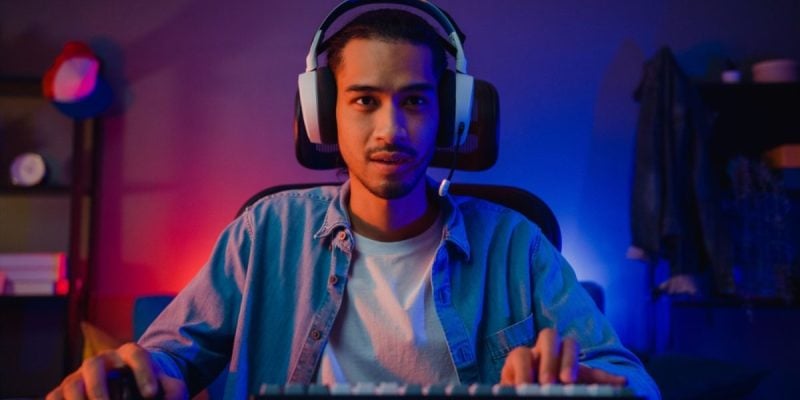Gaming and gambling aren’t strangers. From spinning loot boxes in FIFA to slot-style mini-games hiding in your favorite RPG, we’ve all felt the unmistakable pull of that risk-and-reward kick.
Now, studies show weekly gamers are more than four times as likely to bet as casual ones. That includes not just betting on sports or esports, but also engaging with loot boxes and microtransactions—systems that blur the line between gaming and gambling.
If you’re a gamer, you’ve probably felt it: that rush when you finally pull the exact card you need in Hearthstone, open a loot crate in Overwatch, or hit the jackpot on an in-game reward wheel. Now imagine if that rush wasn’t just in-game. Imagine it came with real cash—or real losses.
This is the blurry boundary between video gaming and online gambling. And lately, rumors around PlayStation potentially entering the social casino space are bringing that line into sharper focus than ever.
So the question is: will gamers actually make the move into online gambling?
What Loot Boxes and Online Slots Have in Common
Let’s be honest: the gambling mechanics are already here.
Loot boxes, prize wheels, and power-up bundles—whether you’re spinning coins in Clash of Clans or unlocking cosmetics in Valorant—all are examples of randomized reward systems. These mirror the dopamine loops of slot machines, where you invest something (money, time, or progress), receive a mystery reward, and repeat.
That’s why researchers have found that people who bought virtual currency in social casinos were eight times more likely to start gambling for real money within six months.
So while gamers might not think of themselves as gamblers, the psychological groundwork is already laid.
PlayStation and Social Casinos: What the Rumors Say
Sony isn’t officially in the iGaming world—yet. But the stage feels set. PlayStation could easily deploy slick, safe, and story-driven casino hubs: VR poker nights, themed slot machines based on God of War, or even a virtual casino lounge where every avatar is a friend.
Recently, multiple industry rumors suggested that Sony may be preparing to launch social casino experiences on the PlayStation Network. These could include free-to-play slots, poker and bingo-style games—possibly gamified with skill-based elements and integrated into PS avatars, trophies and even party chats.
If Sony doesn’t address these rumors directly, some may interpret this as a soft launch—one that primes gamers for console-based gambling mechanics in a way that makes the eventual jump to real money feel natural.
Next Level: From XP Grinds to Online Casino Spins
How ready are gamers to make this leap? Let’s break it down.
1. Gamified Systems Already Resemble Gambling
Games like Call of Duty use tiered unlocks, daily streak bonuses and loot boxes—systems that mirror the progression mechanics found in online slots and live dealer games. The crossover wouldn’t feel weird—it would feel familiar.
2. Social Casinos Remove the “Risk” First
Platforms like Chumba Casino or LuckyLand Slots offer “free-to-play” casino games with the chance to win real money via sweepstakes. You’re not betting your paycheck—until, perhaps, you are.
3. Cross-Platform Gaming Makes Real-Money Gambling Accessible
Today’s online casinos aren’t limited to desktops. Big names like BetMGM, FanDuel, and Caesars offer full-fledged mobile and browser platforms, with real-money blackjack, slots, poker and even live game shows like Monopoly Live. If PlayStation integrates social casino elements into its ecosystem, linking out to real-money apps would be a short hop.
The Buffs, the Bets, and the Blurred Lines to Online Casinos
Gamers live for systems—XP, buffs, gear and squad synergy. They already grind. They already calculate risk versus reward. So when an online casino game offers:
- RTP (return to player) stats like you’d see in an RPG
- Volatility levels, similar to weapon rarity drops
- Bonus rounds that feel like side quests
…it all starts to feel like familiar territory.
But gambling carries real financial risks. Unlike your PS5 platinum trophy collection, you can actually lose money. And for players who are younger, impulsive or already spending heavily on microtransactions, that can be a dangerous mix.
That’s why regulation, age-gating, spending limits and transparency matter more than ever. If any video game platform makes a serious move into gambling, they’ll need to be laser-focused on responsible gambling.









